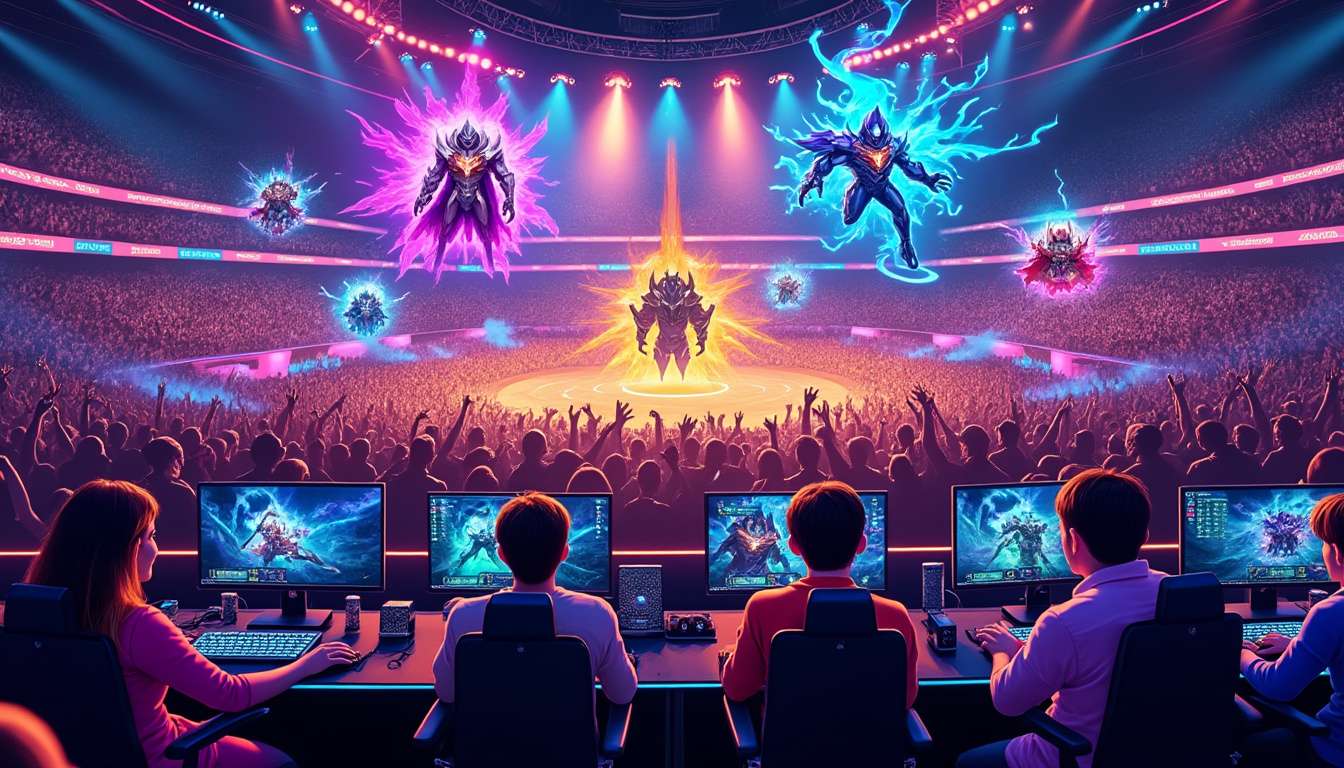League of Legends esports continues to captivate a vast international audience in 2025, standing as a cornerstone of competitive gaming culture. The ecosystem, largely driven by Riot Games, showcases an ever-evolving landscape where legacy powerhouses and emerging teams fiercely battle for supremacy. This dynamic arena is marked by strategic innovation, unparalleled fan engagement, and a robust global community that fuels its ongoing growth.
The Structure of League of Legends Esports in 2025
The competitive scene in League of Legends is characterized by a sophisticated league structure across multiple regions, each offering intense competition and opportunities for teams to showcase their talents. Recognized teams such as Cloud9, Fnatic, G2 Esports, TSM, and Team Liquid remain central figures in North American and European circuits.
- Regional leagues like the LCS, LEC, LCK, and LPL provide the backbone of regular competition.
- Top teams advance to international events such as the Mid-Season Invitational (MSI) and the World Championship.
- Player development academies, including those tied to SK Telecom T1 and EDward Gaming, are vital for nurturing emerging talent.
- Sponsors and partners, including technological and energy drink brands, significantly support the ecosystem.
This multi-tiered format enables a high level of play while maintaining fan interest throughout the year.
Legendary Teams and Rising Contenders
The 2025 season features a blend of veteran squads and ambitious newcomers. SK Telecom T1 and EDward Gaming continue their global dominance, often clashing with the rising force of teams like Gen.G and Thieves.
- SK Telecom T1 leverages its deep history and strategic prowess, often setting the standard for gameplay.
- EDward Gaming represents the peak of Asian competitive play with innovative strategies.
- Gen.G consistently challenges elite teams with youth and aggressive tactics.
- Thieves exemplifies the modern North American scene’s resurgence through strong performances.
This rivalry fuels spectator excitement and exemplifies the vibrant competition intrinsic to League of Legends esports.
Impact of Riot Games on Competitive Ecosystem
Riot Games remains the pivotal organizer behind the esports framework, constantly refining tournament structures and viewer experience. They have implemented data-driven approaches for rankings and balanced gameplay, making competitions fairer and more entertaining globally.
- The introduction of advanced analytics offers fans real-time insights into team strategies and player performance.
- Riot’s extensive commitment to accessibility ensures diverse audiences can enjoy the game across multiple languages and platforms.
- Collaborations with global sponsors such as NVIDIA and Red Bull have enhanced event production value and outreach.
- Riot supports grassroots movements and amateur leagues, fostering the next generation of esports talent.
These initiatives reinforce Riot’s role in shaping an inclusive, innovative, and sustainable esports community worldwide.
Technological Innovations in League of Legends Esports
Technological advancements underpin much of the sport’s appeal. The use of AI-powered tools like the Global Power Rankings system provides dynamic assessments of team strengths across Tier 1 leagues.
- Enhanced in-game tools help analysts and commentators offer deeper tactical breakdowns.
- Broadcast integrations feature augmented reality elements keeping viewers engaged.
- Smart scheduling and player wellness programs support sustained competitive performance).
- Virtual and augmented reality aim to bring fans closer to the in-game action.
These efforts collectively elevate the professionalism and entertainment value in League of Legends esports.
Fan Engagement and Community Impact
League of Legends esports enjoys a vibrant community culture that extends beyond gameplay. Dedicated fans actively engage through social media, forums, and fantasy esports leagues, deepening their connection to teams and players.
- Fantasy esports leagues offer strategic depth and enhance fan participation.
- Social media platforms allow fans to interact with their favorite teams, including Cloud9, Fnatic, and G2 Esports.
- Content creators and streamer collaborations amplify event visibility and fan outreach.
- Major esports celebrations mark milestones, as reflected in recent award ceremonies highlighting exceptional players and teams.
This ecosystem nurtures a sense of belonging and shared excitement among diverse global audiences.

